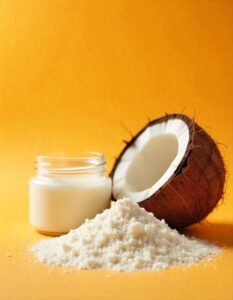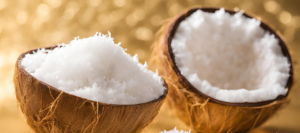The Rise of Coconuts in European Markets
In recent years, the European market has seen a significant surge in the demand for coconuts and coconut-based products. This tropical fruit, once considered exotic, has now become a staple in many European households. From coconut water to coconut oil, the versatility of this fruit has captured the attention of health-conscious consumers and culinary enthusiasts alike.
As the demand grows, so does the need for reliable and efficient coconut importers. Enter Grofarm uG, a company at the forefront of this booming industry. In this comprehensive guide, we’ll explore the landscape of coconut importation in Europe, highlighting the key players and trends shaping the market.
Understanding the Coconut Craze
Why Are Coconuts So Popular?
Coconuts have gained immense popularity for several reasons:
- Health benefits: Rich in nutrients and healthy fats
- Versatility: Used in food, beverages, cosmetics, and more
- Sustainability: Environmentally friendly alternative to many products
The European Coconut Market at a Glance
The European coconut market has experienced steady growth over the past decade. Countries like the Netherlands, Germany, and the UK are leading the charge in coconut imports. This growth is driven by:
- Increasing consumer awareness of health benefits
- Growing vegan and plant-based food trends
- Rising demand for natural and organic products
Key Players in European Coconut Importation
Grofarm uG: A Leader in Coconut Importation
Grofarm uG has established itself as a prominent player in the European coconut import industry. With its commitment to quality and sustainability, Grofarm has become a trusted name among wholesalers, supermarkets, and organic fruit consumers.
What Sets Grofarm Apart?
- Direct relationships with coconut farmers
- Stringent quality control measures
- Sustainable and ethical sourcing practices
- Wide range of coconut products
Other Notable Importers
While Grofarm leads the pack, several other companies play crucial roles in bringing coconuts to European markets:
- Tropical Fruit Company (Netherlands)
- Organic Coconut GmbH (Germany)
- CocoNut Imports Ltd (UK)
- Mediterranean Fruit Traders (Spain)
Each of these companies brings unique strengths to the table, contributing to a diverse and competitive market.
The Coconut Import Process
Understanding the journey of coconuts from tropical farms to European shelves is crucial for importers and retailers alike.
Sourcing and Selection
The process begins with careful sourcing. Importers like Grofarm work directly with farmers in tropical regions to ensure the highest quality coconuts. Factors considered include:
- Coconut variety
- Growing conditions
- Harvesting methods
- Farmer practices (organic, sustainable, etc.)
Quality Control and Certification
Before shipment, coconuts undergo rigorous quality checks. This includes:
- Visual inspection for damage or defects
- Testing for ripeness and flavor
- Checking for any signs of disease or pests
Certification is also a crucial step, especially for organic coconuts. Importers must ensure compliance with European organic standards and obtain necessary certifications.
Transportation and Storage
The journey from farm to European ports is a critical phase. Coconuts are typically transported in:
- Refrigerated containers to maintain freshness
- Specially designed packaging to prevent damage
Upon arrival in Europe, proper storage is essential to maintain quality. This often involves:
- Climate-controlled warehouses
- Regular quality checks
- Efficient inventory management systems
Challenges in Coconut Importation
Importing coconuts to Europe comes with its share of challenges. Understanding these hurdles is crucial for both importers and buyers.
Supply Chain Disruptions
Recent global events have highlighted the vulnerability of international supply chains. Coconut importers face challenges such as:
- Shipping delays
- Increased transportation costs
- Labor shortages in producing countries
Regulatory Compliance
Navigating the complex web of European regulations can be daunting. Importers must comply with:
- Food safety standards
- Labeling requirements
- Organic certification regulations (where applicable)
Price Fluctuations
The coconut market can be volatile, with prices influenced by factors such as:
- Weather conditions in producing countries
- Global demand fluctuations
- Currency exchange rates
The Role of Technology in Coconut Importation
In an increasingly digital world, technology plays a crucial role in streamlining the coconut import process.
Blockchain for Traceability
Blockchain technology is revolutionizing supply chain management in the food industry. For coconut importers, this means:
- Enhanced traceability from farm to shelf
- Increased transparency for consumers
- Improved food safety measures
AI and Data Analytics
Artificial Intelligence and data analytics are helping importers make smarter decisions:
- Predicting market trends and demand
- Optimizing inventory management
- Improving logistics and transportation efficiency
Sustainable Practices in Coconut Importation
Sustainability is no longer just a buzzword; it’s a necessity in the coconut industry. Leading importers like Grofarm are championing sustainable practices throughout their supply chains.
Fair Trade and Ethical Sourcing
Consumers are increasingly concerned about the ethical implications of their purchases. Coconut importers are responding by:
- Ensuring fair wages for farmers
- Supporting community development in producing regions
- Implementing transparent supply chain practices
Eco-Friendly Packaging
The environmental impact of packaging is a growing concern. Innovative importers are exploring:
- Biodegradable packaging materials
- Reduced plastic use in transportation
- Recycling programs for packaging waste
The Future of Coconut Importation in Europe
As we look to the future, several trends are likely to shape the coconut import industry in Europe:
Diversification of Coconut Products
While whole coconuts and coconut water remain popular, we’re seeing a growing demand for:
- Coconut-based meat alternatives
- Specialized coconut oils for different applications
- Coconut-derived cosmetic products
Emphasis on Origin and Quality
Consumers are becoming more discerning, showing increased interest in:
- Single-origin coconuts
- Specialty coconut varieties
- Organic and biodynamic coconuts
Technology-Driven Transparency
Expect to see more importers leveraging technology to provide:
- Real-time tracking of coconut shipments
- Detailed information about coconut origins and farming practices
- Direct connections between consumers and producers
Choosing the Right Coconut Importer
For wholesalers, supermarkets, and organic fruit consumers, selecting the right coconut importer is crucial. Here are some factors to consider:
Quality Assurance
Look for importers with:
- Rigorous quality control processes
- Certifications from recognized bodies
- Consistent product quality
Reliability and Consistency
Consider importers who can:
- Maintain a steady supply throughout the year
- Adapt to market fluctuations
- Offer flexible ordering options
Sustainability Commitment
Prioritize importers who demonstrate:
- Ethical sourcing practices
- Environmental responsibility
- Transparency in their supply chain
Product Range
Choose importers offering:
- A diverse range of coconut products
- Ability to source specialty or unique coconut varieties
- Flexibility to meet specific product requirements
Conclusion: The Coconut Revolution in Europe
The European coconut market is more than just a trend; it’s a revolution in the making. As consumers continue to embrace the versatility and health benefits of coconuts, the role of importers becomes increasingly crucial.
Companies like Grofarm uG are leading the way, setting new standards in quality, sustainability, and innovation. For importers, wholesalers, supermarkets, and organic fruit consumers, staying informed about market trends and choosing the right partners is key to riding the coconut wave successfully.
As we move forward, the coconut import industry in Europe is poised for continued growth and evolution. By embracing sustainable practices, leveraging technology, and maintaining a commitment to quality, importers can ensure that Europe’s love affair with coconuts continues to flourish.
Whether you’re a seasoned player in the coconut market or just beginning to explore its potential, the future looks bright. With the right knowledge, partners, and strategies, you can tap into the growing demand for coconuts and coconut products across Europe.
Remember, in the world of coconut importation, success lies not just in the product itself, but in the entire journey from palm to plate. By prioritizing quality, sustainability, and innovation, we can ensure that Europe’s coconut revolution continues to thrive, benefiting consumers, businesses, and communities alike.
“The coconut industry in Europe is not just about importing a fruit; it’s about importing a lifestyle, a health revolution, and a sustainable future.” – Grofarm uG



